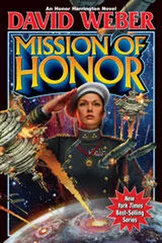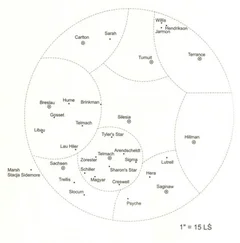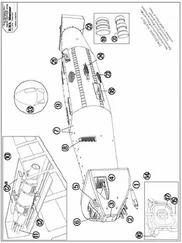The savage smile widened. "Apparently, these so-called 'pros' have never heard of modern forensics. Which is not the least of the reasons I don't think this was done by the Peeps."
Zilwicki's eyes moved to the door of the apartment. The same door which, the day before, someone had managed to open without leaving any sign of a forced entry. "Everything about this operation smacks of amateurs who are too clever for their own good. Oil mixed with water. The ransom note is archaic. Yet the door's modern security devices were bypassed effortlessly.
"Idiots," he said softly. "They'd have done better to burn it open. Would have taken a bit of time, with a modern door. But as it is, they might as well have left another note announcing in bold letters: inside job. Whoever they were, they had to have the complicity of someone in the complex's maintenance staff. Within twenty-four hours, if they move fast – and they will – the Chicago cops can get me profiles of everyone who works in this complex along with the forensics results. I don't think it'll be that hard to narrow the suspects down to a very small list."
"Will the police cooperate to that extent?"
"I think so. They owe me some favors, for one thing. For another, they have their own attitude toward kidnapping, which usually makes them willing to bend the rules a little."
His eyes came back to the ransom note sitting on the side table. An actual note, written by an actual person, on actual paper. Again the captain barked a laugh. "Professional intelligence!"
Helen
At first, Helen had planned to just leave the digging shards out in the open, lying with the rest of the rubble which half-filled the cell. But soon enough she realized that if her captors took a close look at the interior of the cell, they would surely notice the signs of recent use on the shards.
Not that such an inspection was very likely. From what she could tell, her captors were so arrogant that they apparently never even considered the possibility that a fourteen-year-old girl might try to thwart them.
Helen had never gotten a good look at her captors, after the first few moments when they had jimmied their way into the apartment and abducted her. They had fitted a hood over her head right away and somehow smuggled her out of the huge complex without being spotted. How they managed that feat was a mystery to Helen, since the complex had a population density which was astonishing to anyone from Manticore. She had realized from the first terrifying hour that they must have planned her abduction carefully, and had the assistance of someone within the apartment complex's maintenance staff.
Once they got her underground, they had eventually removed the hood. Helen didn't think they had planned on doing that, but it had quickly proven necessary – unless they wanted to carry her. The footing in the subterranean labyrinth was so treacherous that Helen had continually tripped while wearing the hood. She had been snarled at and cuffed several times before the abductors finally bowed to the inevitable and took off the hood.
Her captors' angry exasperation with her was just another sign of the carelessness which lay beneath the arrogant surface. For all the meticulous planning that had clearly gone into her abduction, her captors had apparently never thought of such minor obstacles. From Helen's careful study of military history – she firmly intended to follow her parents' footsteps and have a career in the Navy – she recognized the classic signs of opponents who were too full of themselves and never bothered to consider what the enemy might do. Or to simply understand what the ancient Clausewitz had called the inevitable "friction of war."
But, even though the hood had been removed, they had cuffed her immediately whenever her eyes veered in their direction. And since they had shoved her into this cell they still demanded that she face the wall whenever they entered with her food. According to the novels she had read, that was a good sign. Captors who didn't want to be recognized were not planning to kill you.
That was the theory, at least. Helen didn't place too much credence in it, however. She still had no idea who her captors were, or why they had kidnapped her. But of one thing she had no doubt at all: they would no more hesitate to kill her than they would an insect. Granted, at the age of fourteen she could hardly claim to be an expert on human villainy. But it was obvious enough, just from the way her captors walked , that they considered themselves a breed apart. She had seen little of their faces, but she had not missed the little strut with which all of them moved. Like leopards, preening before sheep.
There were four of them: two males, and two females. From the few glances she'd gotten, they'd looked enough alike that Helen thought they might be part of the same family. But now that she had a chance to think about it calmly, she was beginning to think otherwise. Her captors had made no attempt to remain silent in her presence, for the good and simple reason that they spoke their own language. Helen didn't know the tongue, but she thought she recognized the language group. Many of the phrases resonated with the Old Byelorussian that was still spoken in some of the more rural areas of the Gryphon highlands. She was almost certain her captors were speaking a derivative of one of the Slavic languages.
And, if so, there was an ugly possibility. Her father had mentioned to her, once, that the genetic "super-soldiers" who had been at the heart of Earth's terrible Final War had originally been bred in Ukrainian laboratories. The "super-soldiers" had been supposedly annihilated in those wars. But her father had told her that some of them survived. And still lurked, somewhere in the great human ocean which was humanity's home planet.
By all accounts, those genetic "super-soldiers" had looked upon other people as nothing more than beasts of burden. Or toys for their amusement.
Or insects . . .
That last image brought a peculiar kind of comfort. Helen realized she was pursuing the ancient strategy of one of Terra's most successful species. Like a cockroach, she would find safety in the walls.
Her lips quirked in a smile, she went back to digging.
Victor
Durkheim came to visit Victor in the hospital. As always, the head of State Security's detachment at the Havenite embassy on Terra was curt and abrupt.
"Nothing really serious," he muttered. "Spectacular set of cuts and bruises, but nothing worse. You're lucky."
Durkheim was thin to the point of emaciation. His bony, sunken-cheeked face was perched on the end of a long and scrawny neck. Standing at the foot of the quick-heal tank and staring down at him, the SS citizen general reminded Victor of nothing so much as holographs he had seen of a Terran vulture perched on a tree limb.
"So what happened?" he demanded.
Victor's answer came without hesitation. "I was just trying to get Usher to cut down on the drinking. Looks bad for our image here. I never imagined—"
Durkheim snorted. "Talk about foolish apprentices!" There was no heat in his voice, however. "Leave Usher alone, youngster. Frankly, the best thing for everybody would be if he'd just drink himself to death."
He placed a clawlike hand on the rim of the tank and leaned over. Now, he really looked like a carrion-eater.
"Usher's still alive for the sole reason that he's a Hero of the Revolution – never mind the details – and Rob Pierre is sometimes prone to sentimentalism. That's it ." Hissing: "You understand?"
Читать дальше












